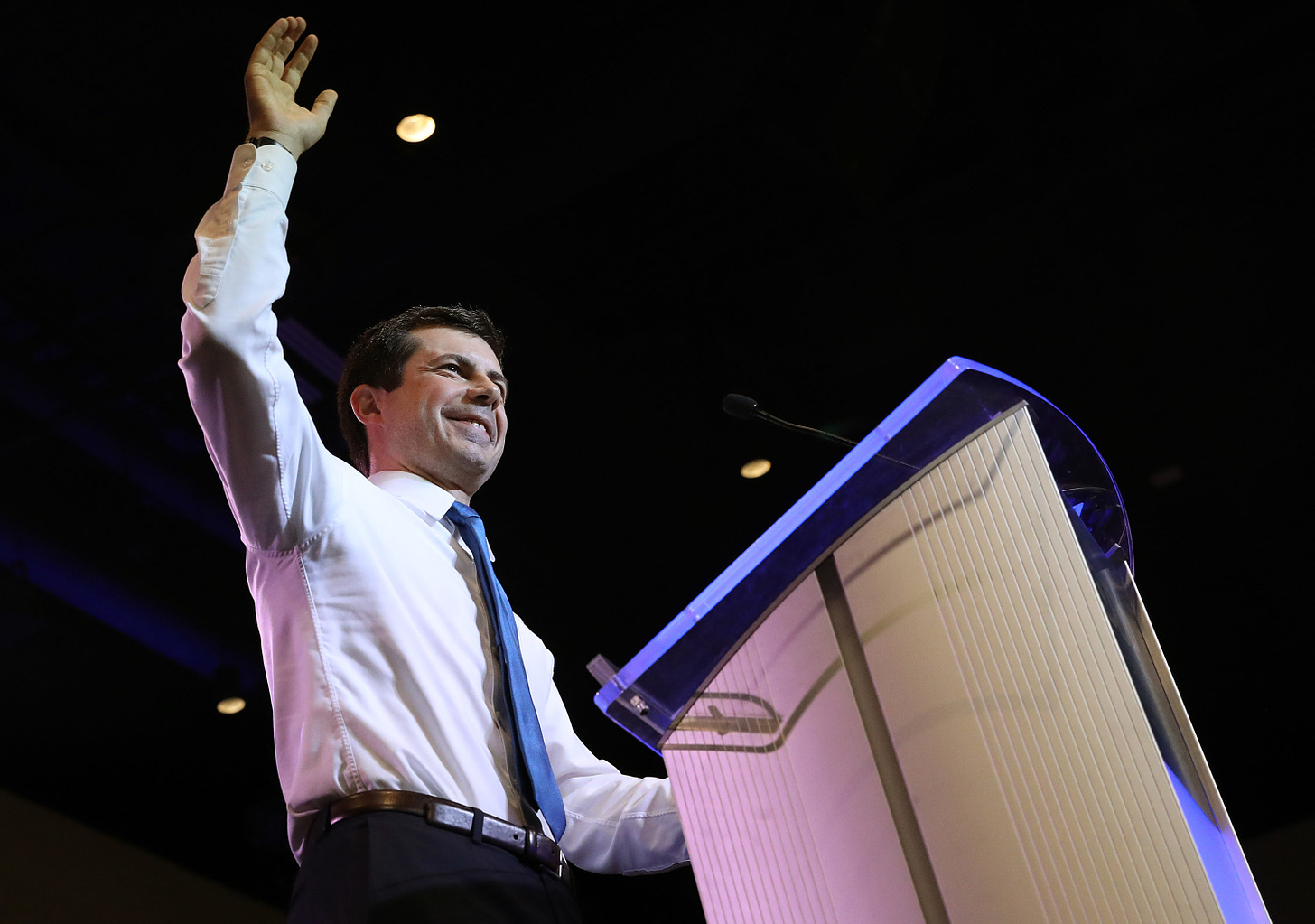Don’t Underestimate Mayor Pete
He might not win now, but conservatives shouldn’t ignore his appeal and his bright future.
Pete Buttigieg has a chance to be the most influential candidate in the Democratic field. He combines far-left policies with a smooth, even-keeled, welcoming manner in a way no other Democratic presidential contender can pull off. Conservatives and centrists should take notice.
Consider Mayor Pete in comparison to the other top-tier Democratic candidates.
Joe Biden has Buttigieg beat in terms of raw charm, but he’s a fairly generic, old-school Democrat. His whole campaign is based on a return to normalcy – or at least, the comparative normalcy of the Obama years. His inclination isn’t to steer the Democratic party and the country dramatically to the left, and as a likely one-term president, he’s unlikely to be able to do so even if he wanted to.
Kamala Harris is on the far left. She’s promised to use unilateral executive action to change gun laws nationally. Her economic agenda includes an inchoate campaign against “sexism, racism, and corporate favoritism in our economy to ensure every American gets a fair shot.” She’s struggled with whether or not to abolish private insurance, which puts her somewhere in the center of the Democratic presidential field, but far to the left of the average American.
But her manner is less inviting than Buttigieg’s. She’s running in the “fighter” lane with Elizabeth Warren, which will appeal broadly to Democrats whose top priority is defeating Donald Trump, but doesn’t necessarily mean she’ll be able to form a coalition for a left-liberal agenda. She could be another Barack Obama, who discovered in 2010 that winning on hope and change isn’t the same as building a national consensus on bailouts, stimulus, and Obamacare.
Bernie is even farther left. But as a political threat, he’s unimpressive. He’s never built a coalition, preferring instead to be a senatorial gadfly who still refuses to join the party he seeks to lead. Despite having been in Congress since 1991, he’s only spent two years as a committee chairman – and the committee was Veterans Affairs, hardly a key interest of Bernie’s.
Imagine Bernie trying to shepherd his Medicare for All bill through Congress. Would he be a shrewd, effective vote wrangler who knew what to say and give to whom? Or would he scream at everyone about a political revolution?
To be generous, let’s include Elizabeth Warren in this tier as well. She’s challenging Bernie for leftist-populist anger, and Harris for gladiator champion. But her defining features are her policy plans and her propensity to “nerd out” with voters. One problem with those plans is that there are 435 members of the legislature, and they all want to change those plans to suit their own interests. Again, ask Obama how much Congress likes passing sweeping legislation backed by the president without its own input and influence. Better yet, ask Ben Nelson of “Cornhusker Kickback” fame.
Mayor Pete is different. His debate performance was masterful, especially his answer about the police shooting incident in South Bend. He was direct and forthright. He rhetorically jiu-jitsued his way from admitting fault at the beginning of the answer – “I didn’t get it done” – to making you trust him more by the end. It was clearly an answer he had practiced a hundred times, and yet it seemed honest and personal, not detached. It was Clintonian – Bill, not Hillary.
A quick scan of his campaign website reveals his Jacobin-light policy preferences. Buttigieg favors a public option for health insurance – a position that was too far left even for the Democrats of 2009-10. He favors publicly funded abortion up to the moment of birth. He’s endorsed the Green New Deal.
Just like the rest of the top-tier Democrats (save Biden), Buttigieg is a creature of the Democrats’ left wing. But he stands a better chance of persuading others to follow him.
Imagine President Buttigieg, in a calm, rational, warm tone, explaining to the American people from the Oval Office or the well of the House the urgent need for a nationwide gun licensing system – a federal registry of all gun owners. With that kind of cover from the presidential bully pulpit, congressional Democrats from red and rural states could find their way to voting yes. Ditto for court packing.
Obama tried to provide that kind of cover to congressional Democrats. His favorite rhetorical devices always painted his side as reasonable and pragmatic, as opposed to radical, obstructionist Republicans: “That’s not who we are,” “false choice,” and his famous “tide of history.” His mistake was that this sound rhetorical strategy mated poorly with his superciliousness – the “clinging to guns and religion” stuff.
If Buttigieg can avoid reverting to a technocratic McKinseyite, he has a chance to become one of the most influential progressive politicians of his generation. And at only 37 years old, he’s likely to be around for a while.
Odds are he won’t end up being president in 2021, but conservatives and centrists would be foolish not to take him seriously now.




